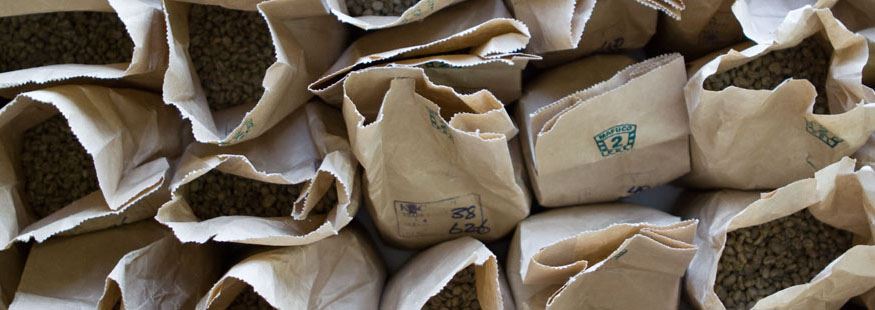Industry News.

The current situation in Nyeri, Kenya has lead the industry news this week, drawing particular attention from the specialty coffee sector.
The introduction of the new Kenyan Constitution has resulted in considerable delegation of power to county governments, offering unprecedented involvement in regional agricultural and economic issues. The Nyeri Governor has announced the government’s intention for all of the regions coffee is to be milled at a single mill in Sagana and marketed to the world using a newly formed company, with the intent to achieve higher prices and pass these onto the producers. Nyeri county is home to some of the finest coffees in Kenya, and is held in high regard within the specialty coffee sector. Nyeri Governor Nderitu Gachagua insists that the new plan is in the best interests of producers and will result in higher prices and controlled coffee sales; however there is growing concern among producers and exporters that the proposed changes will result in a significant loss of traceability and disrupt the flow of coffee through the Nairobi Coffee Exchange (NCE). Thirteen cooperatives have taken the local government authority to the High court to dispute the changes and will have their case heard mid-February in the hope that they can be overturned. Industry professionals and organisations hold grave quality and traceability concerns for the future of Kenyan coffee should these changes go ahead.
Brazilian Coffee Export Association, Cecafe, has released December green coffee export figures for the origin, recording a decline of 80,000 bags from the same month in the previous year. Exports totalled 2.51 million bags, which was 3% lower than the previous December. While the physical decline may be uncontroversial, the drop in value of Brazil’s coffee exports for the month was more concerning. The total value of coffee exports for the month amounted to 396 million $USD, a 33.78% decline compared to the same month in the previous year. The 2014-15 crop will amount to only 51 million bags according to Volcafe, an estimated decline of over 5 million bags. This shortfall could see the global coffee market facing its first shortage in three years.
The National Coffee Institute in Costa Rica have begun importing and introducing seed of the leaf rust resistant Obata variety from Brazil. The Obata seed will be offered to producers at cost price and will hopefully hold up against the widespread disease. This program follows others in the region, with disease resistant coffee seedlings being offered at a subsidized cost to farmers in Honduras, Nicaragua, El Salvador and Guatemala. While these recovery efforts are long term in nature, with the seedlings taking three to four years to come into maturity, they are integral to sustain confidence in coffee farming and safeguard the future of the industry in the region.
In certification news, UTZ have opened the second round of public consultation on the UTZ Certified Code of Conduct. Open to all actors in the supply chain, interested civil society organisations and the general public, the consultation process promotes transparency and ensures ‘everyone has a say’. The code is reviewed every five years by stakeholders in order to enhance the impact of the certification and to promote continuous improvement. The first round of public consultation was finalized in August this year and a second draft has been released from these contributions. The amended code will include new content regarding climate change and living wages. It will also have a different structure that relies on a core code with separate modules for tea, coffee, cocoa and rooibos; offering more flexibility and room for expansion.
Ref: Bloomberg News, I&M Smith, Daily Coffee News, Standard Digital, Dormans, ECOM Trading.


